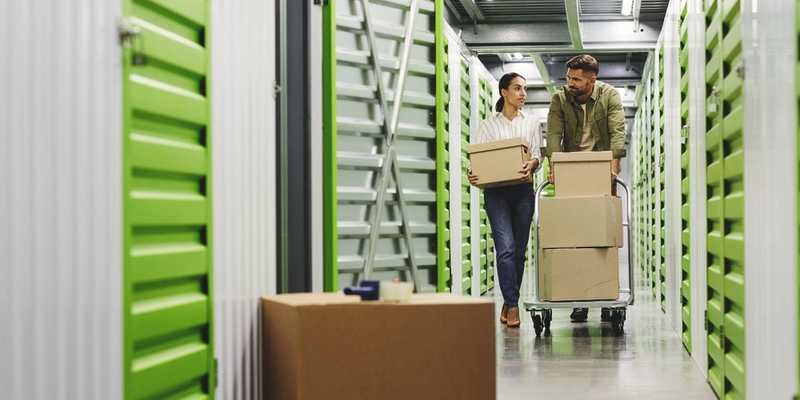
If you are not redirected within 30 seconds, please click here to continue.
Samedi: 10h – 16h HAE

If you are not redirected within 30 seconds, please click here to continue.
If you are not redirected within 30 seconds, please click here to continue.
How safe is your self storage unit?

If it seems like you’re seeing more self-storage facilities pop up, you aren't imagining things. The self-storage industry is on the rise across Canada.
At the peak of the COVID-19 pandemic, interprovincial migration was the highest in more than 30 years. With the rise of remote work, steady population growth and higher disposable incomes, demand for self-storage space is increasing.
Inside Canada's storage boom
Operators are rushing to meet this demand by building new facilities. Traditionally, the Canadian self-storage market has been underserved by providing two- or three-square feet of self-storage space per person. The United States, by comparison, has about 5.4 square feet of storage space per person.
With fewer than 3,000 facilities nationwide, investors, developers, and storage operators are capitalizing on this boom and building more storage facilities in Canada’s top cities.
With more storage facilities being built, Canadians are poised to become first-time self-storage users. That begs the question: are your belongings safe in storage? Are they insured?
Self-storage risks and hazards
Most self-storage facilities are very secure and well-maintained. That said, break-ins, fires, floods and other calamities do occur, just as they happen in apartments and residential neighbourhoods.
Perhaps one of the greatest risks is managing moisture and preventing mould and mildew from damaging your items. Choosing a climate-controlled facility, which regulates air temperature and humidity, is a good way to prevent this from happening.
You may think that in the event of some unforeseen catastrophe, the self-storage facility would be liable to compensate you for damage to your belongings. However, that is rarely, if ever, the case. Generally speaking, self-storage operators will take no responsibility for your possessions, putting the responsibility on you to properly insure your belongings.
Self-storage insurance options in Canada
Many self-storage providers in Canada will require that you either show proof of insurance or purchase an insurance policy from them before you can rent a unit.
The good news is that, in most circumstances, your home insurance, condo insurance, or tenant insurance policy automatically protects your personal belongings, even if they are stored in a self-storage facility and outside the home. There may be certain limitations and deductibles to consider, so it is a good idea to confirm with your insurance provider what exactly may be covered.
For example, most home insurance policies only cover items for 90 days or the length of the policy, whichever is shorter. If you plan on leaving your personal belongings for longer, consider purchasing a self-storage policy.
Even if you have some coverage through your existing homeowner’s or renter’s policy, purchasing a supplemental insurance policy from the self-storage facility might still be a good idea. For one, if something does happen to your goods in storage you won't have to make a claim on your homeowner's policy and risk future rate increases.
Shop around for the right home insurance policy to protect your items in storage
If the terms offered in the policy sold by the storage operator you are renting from aren't great, you can shop around for other specialty insurance providers elsewhere that will cover your items.
Look for an all-risk, replacement cost policy to make sure your stored items are fully protected. And while you’re at it, consider shopping around for a better home insurance policy with RATESDOTCA.
Interested in creating content with RATESDOTCA? Contact us at email@rates.ca.
Don't waste time calling around for home insurance
Use RATESDOTCA to shop around and compare multiple quotes at the same time.
Finding the best home insurance coverage has never been so easy!
Get money-saving tips in your inbox.
Stay on top of personal finance tips from our money experts!










